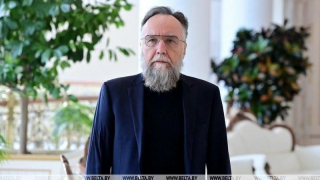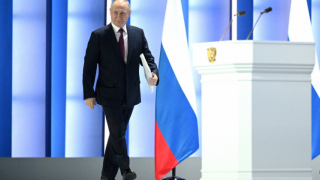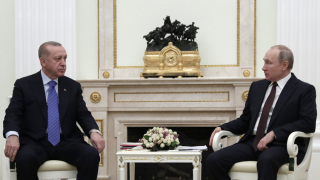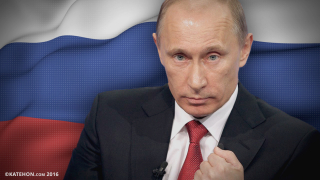Vladimir Putin and Multipolarity
Since his ascension to the Russian Presidency, Vladimir Putin became the attention of the Global mainstream media due to two major reasons. First, as a young man, he served in the Soviet Intelligence KGB and during the disintegration of the Soviet Union he was serving as colonel at the KGB headquarter in Dresden, East Germany. This means the young Russian leader has elephantine memories from the Soviet time. Second, after the fall of the Soviet Union, young Vladimir Putin, who is the graduate of Law and ex-KGB officer became jobless for a brief period of time until then Saint Petersburg mayor Anatoly Sobchak appointed him at the office, where initially served as junior officer and then became the deputy mayor. These two experiences became the prime reason that dragged the attention of global mainstream media towards the shadowy, mysterious and incomprehensible personality of the young Russian leader.
In the wake of September 2001 terrorist attack, Vladimir Putin became the first global leader to visit the United States and met then US president George W. Bush. After a brief meeting with the young Russian leader, President Bush publically remarked "I looked the man in the eye. I found him to be very straightforward and trustworthy". Perhaps, President Bush's attempt to get the sense of Vladimir Putin's soul was not a geopolitical blunder because in his decisions and defence of the interests of Russia, Vladimir Putin has always proved himself to be straightforward and trustworthy.
Nonetheless, it is not only at the political sphere that Vladimir Putin was misunderstood and misinterpreted but at the geopolitical sphere too. In the words of famous Russian TV host and global media icon Vladimir Pozner "During the last twenty years; the western leaders have misunderstood Vladimir Putin and consequently, over the same period how Vladimir Putin portrayed himself was the very reflection of the Western Political mind-set.
If we analyse the personality of the Russian leader from the geopolitical perspective then without any doubt he appears as a complete pragmatic realist who always deems the "Security" of Russia as his top priority. During the early years of his presidency, Vladimir Putin established a close relations both with the United States and its European neighbours. To get the security assurances from the United States and its European allies, Russia collaborated with NATO to establish the NATO-Russia Council (NRC) in 2002. The major task of the NATO-Russia Council (NRC) was consensus building, cooperation and mutual consultation on the security matters. Perhaps, Vladimir Putin's this pragmatic gesture must not be forgotten.
In addition, since the early days in office, Vladimir Putin time and time again shared Russia's security red-lines with the United States and its NATO allies in Europe. The foreign policy experts called Putin's Foreign Policy pragmatism as Russia's Near Abroad approach that remained effective till 2004. Russia's security concerns began deepening when large number of Post-Soviet states from Baltic and Eastern Europe joined the European Union. Nonetheless, from the very beginning Russia perceived EU's eastward expansion from the perspective of security dilemma and hence, during several international gatherings, Vladimir Putin questioned EU's eastward expansion policy. Here, Putin's soaring security concerns can be equated with the analysis of famous geopolitical author Tim Marshall. According to Marshall, throughout history Russia has been the prisoner of its large, and over-stretched flat geography, where "Security" always remained the obsession of its rulers.
Similarly, the EU's eastward expansion policy that began in 2004 became the major content of debate and discussion among the Russian political and security elites. Especially the Russian security elites believed that the EU's eastward expansion aims at paving the way for NATO to reach the Russian borders. Hence, from this discussion emerged a new security phenomenon "Encirclement of Russia" that came to dominate the Russian Foreign Policy for the years to come. Most of the Russian political and security elites directly blamed the United States for the Americanization of European Foreign and Defence policies. In this regard, if someone wants to understand the background of ongoing conflict between Russia and Ukraine then one must study post-2004 transformation of the Russian Foreign Policy. In addition, 2004 is important for two major reasons.
First, 2004 marked the beginning of EU's eastward expansion and hence NATO build-ups near the Russian borders. Second, in the same years, the colour revolutions began in the post-soviet space starting from Ukraine, which Russia believe were NATO sponsored to topple Russia-friendly regimes. Hence, in the wake of colour revolutions the term "Security of the Russia's sphere of Influence" became the major obsession of Russian political and security elites.
In the latter context, if we overhaul the geopolitical thinking of Russian President then in Putin's view the fall of the Soviet Union was the greatest geopolitical disaster of the twentieth century that jeopardized geopolitical security of Russia. Perhaps, this is why from early days in office, Vladimir Putin speculated about the security concerns of the Russian Federation. Even, concerning Russia's red-lines, he send out a clear warning to the United States and its European NATO allies during his speech at the Munich Security Conference in 2007. Vladimir Putin said; " the fact that we are ready not to place NATO army outside the German territory gives the Soviet Union a firm security guarantee"-where are these guarantees?. Hence in Putin's geopolitical view Americans and its European allies have overshadowed and despised the security guarantees to Russia and allowed NATO to encircle Russia, which he deems as broken promise.
As a pragmatist realist, Vladimir Putin believes that since America and its European allies have broken the promise then Russia has the natural right to ensure its security in the post-soviet space. Hence, the events such as the War with Georgia (2008) and annexation of Crimea (2014) was just a calm before the storm. In my opinion, these events were the wake-up call for NATO to abandon its expansionism along the Russian borders. Unfortunately, in the west these two major events were not received as major warnings instead the west deemed them as Russian aggression and neo-imperialism, which is completely beyond logic.
In Putin's view, the west must respect Russia as a separate pole in the International order along with other emerging global powers such as China and India. According to Putin, the unipolar moment has ended and the international rule of law can only be strengthened and implemented if the west respect the "Sphere of influence" of each pole. Moreover, the emerging multipolarity is real and the west must understand this fact, if they are even little serious about international peace and security.
Author
Shahzada Rahim is the author of the book "Beyond Civilization and History" and a geopolitical expert. He is serving as the editor-in-chief of the News Portal The Eurasian Post.











